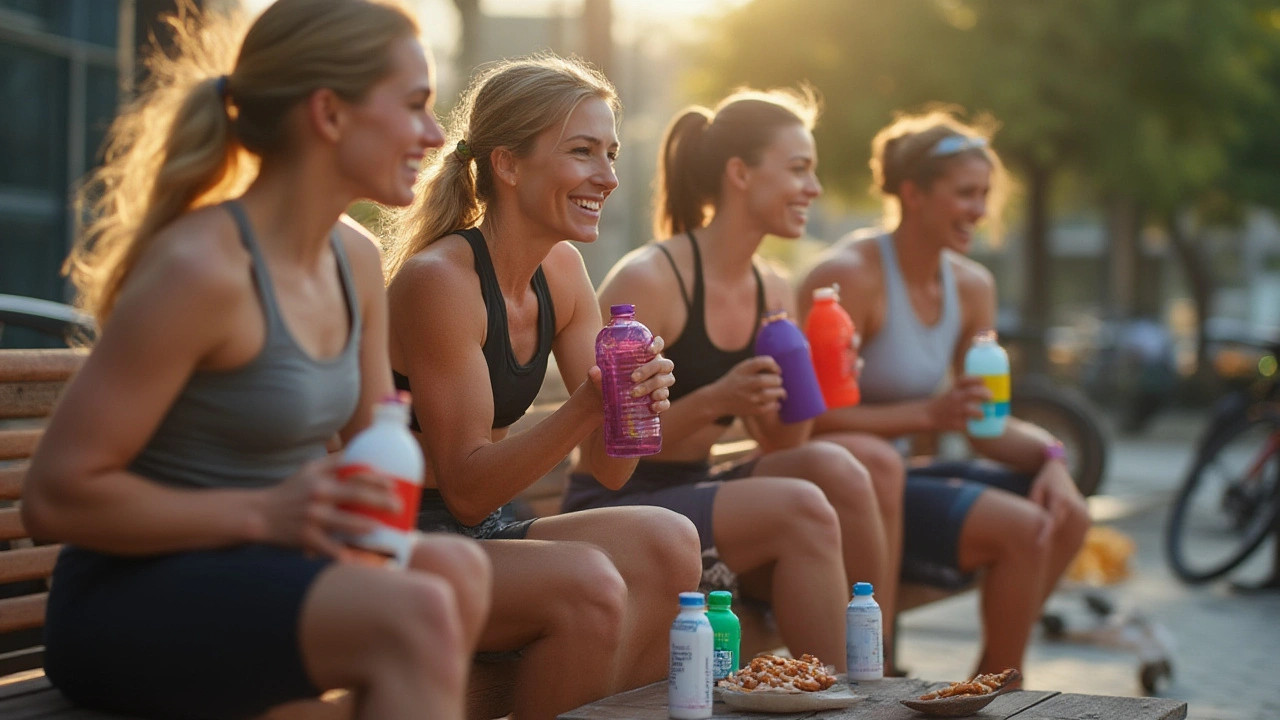
Unlock better workout gains with sodium. Learn how this everyday mineral can boost performance, prevent cramps, and improve hydration in practical, evidence-backed ways.
Whether you lift weights, run miles, or just stay busy, the food you eat fuels how you feel and perform. Good sports nutrition isn’t a mystery; it’s about matching the right nutrients to what your body needs before, during, and after activity. In this guide you’ll get simple, practical advice you can start using today.
First, focus on the three basics: protein, carbs, and fats. Protein repairs muscles, carbs give quick energy, and healthy fats support hormones and long‑lasting stamina. Aim for a balance that matches your workout intensity—light cardio might need more carbs, while heavy strength training benefits extra protein. A plate of grilled chicken, quinoa, and mixed veggies hits all three goals without being fancy.
Carbohydrates are the fastest fuel source. Eat them about 30‑60 minutes before a session; a banana or a small oatmeal bowl works well. During long events, consider a sports drink or a handful of dried fruit to keep blood sugar steady. Protein should come after exercise to jump‑start recovery—think a whey shake or a Greek‑yogurt cup within an hour of finishing. Don’t forget micronutrients like iron, calcium, and vitamin D; they keep red blood cells healthy and bones strong.
Supplements can fill gaps, but they’re not magic pills. Creatine is one of the most researched and can boost short‑burst strength when taken daily. Beta‑alanine helps delay muscle fatigue in high‑intensity work. For endurance, beetroot juice or a nitrate‑rich supplement may improve oxygen use. Choose products that list clear dosages and have third‑party testing. If you’re unsure, start with one supplement at a time and see how your body reacts.
Hydration is just as important as food. Aim for 500 ml of water a few hours before you start, then sip regularly during activity. For sessions over an hour, add electrolytes to replace sodium and potassium lost in sweat. After finishing, rehydrate with a mix of water and a small carb source—like a sports drink or chocolate milk—to speed recovery.
Putting it all together can be easy. A typical day might look like this: breakfast oatmeal with berries and a scoop of protein powder; a mid‑morning snack of an apple and almonds; lunch grilled salmon, sweet potato, and spinach; pre‑workout banana; post‑workout whey shake; dinner stir‑fry with tofu, broccoli, and brown rice. Adjust portions based on how long or intense your workouts are.
Quick tips to remember: eat carbs before you move, protein after you move, stay hydrated, and test any supplement slowly. Follow these basics and you’ll notice more energy, better muscle repair, and faster gains without getting lost in complicated diet plans.

Unlock better workout gains with sodium. Learn how this everyday mineral can boost performance, prevent cramps, and improve hydration in practical, evidence-backed ways.